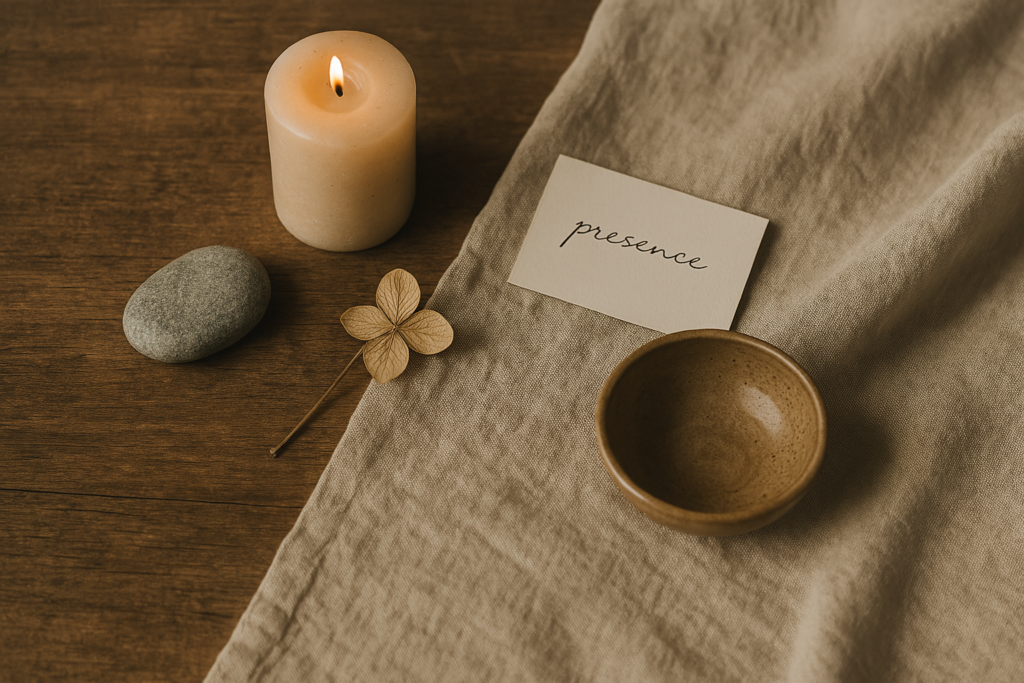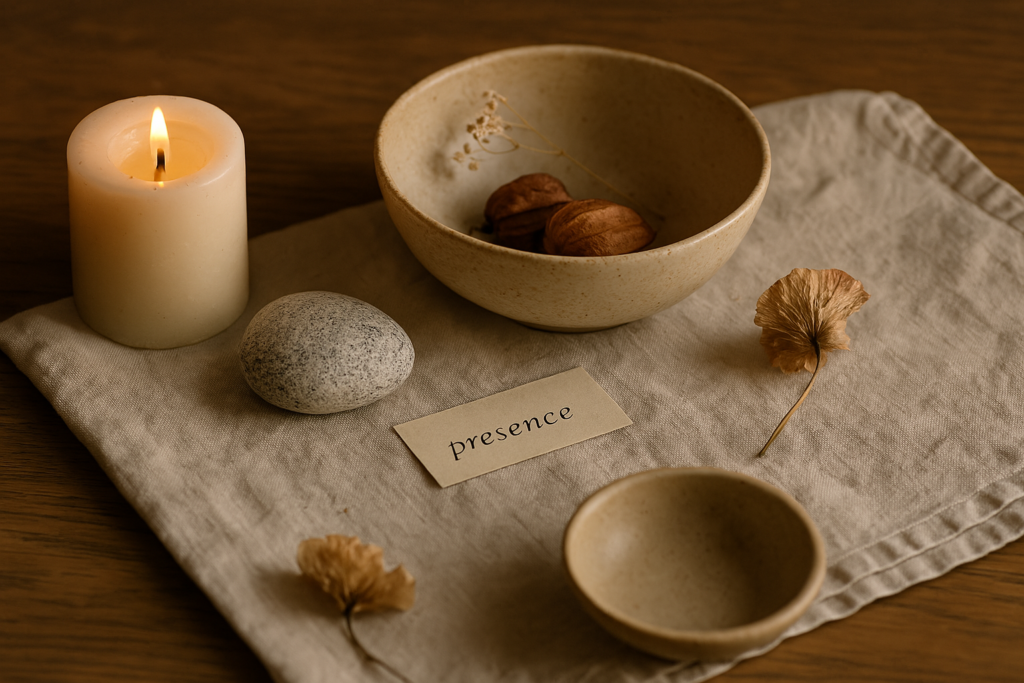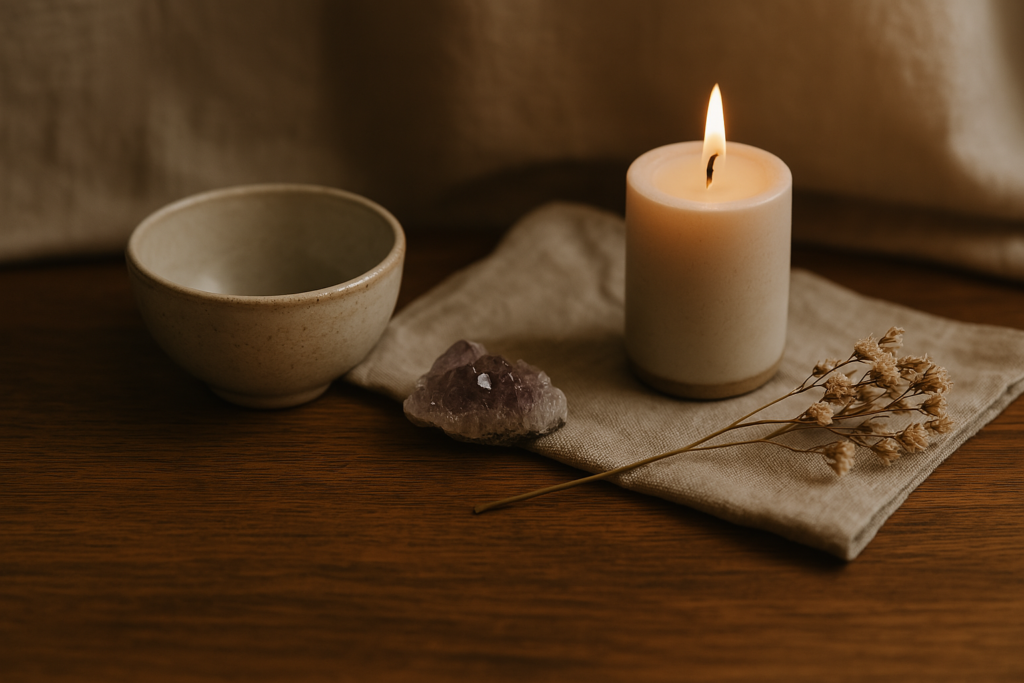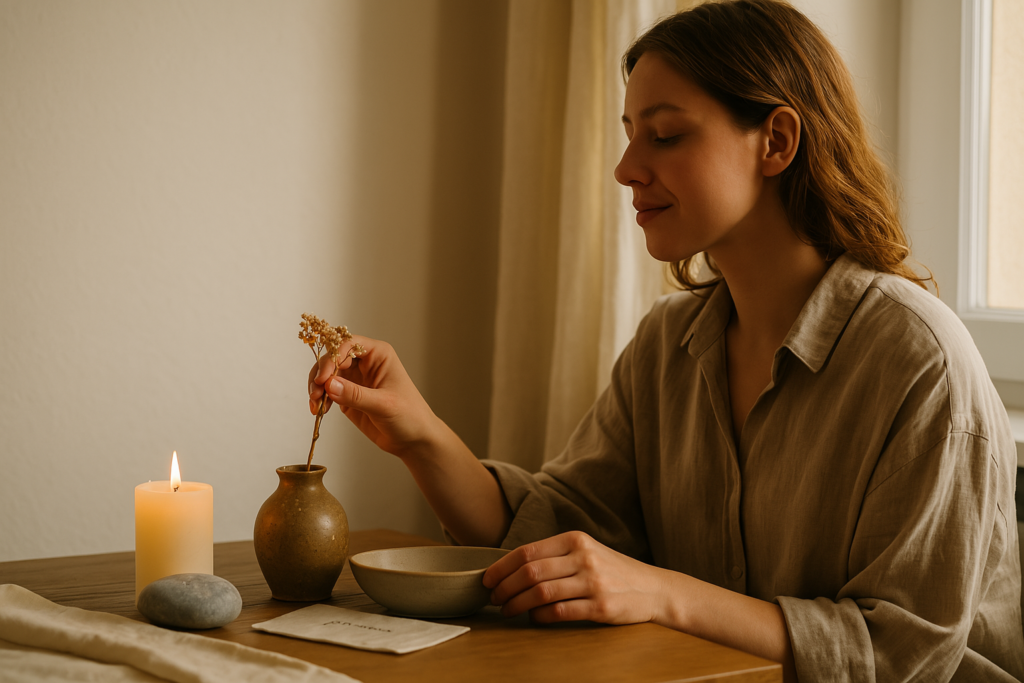Introduction
In today’s fast-paced world, our homes often become mere backdrops for our daily lives, filled with functional items designed to meet our practical needs. However, the concept of integrating meaningful spaces within our home environment holds an equally important role. Not everything in our living quarters has to serve a utilitarian purpose; some objects can transcend their physical form and embody emotional significance. This notion encourages homeowners to curate spaces that resonate with their values, experiences, and personal history.
Everyday altars, as they are often referred to, can serve as focal points for reflection, inspiration, and connection to our past. These spaces can take various forms, from a dedicated shelf adorned with travel mementos to a corner adorned with family photographs, each piece evoking cherished memories. The inclusion of such items fosters an atmosphere infused with beauty and intentionality, reminding us of our life journeys and the moments that shaped us. By creating a dedicated space for significant objects, homeowners can cultivate a sense of grounding in their daily lives, allowing them to pause, reflect, and engage with their surroundings on a deeper level.

This practice of establishing everyday altars in our homes is not just about aesthetics; it is also about creating an environment that nurtures our well-being. Surrounding ourselves with items that evoke positive emotions can significantly enhance our mental and emotional states. By dedicating time to thoughtfully arrange these altars, individuals can reinforce their connection to the present moment while cherishing their past experiences. This blog post will explore the various facets of creating meaningful spaces, delving into its psychological benefits and practical considerations, as we delve into the transformative power of everyday altars in our homes.
What is an Everyday Altar?
An everyday altar is a designated space within the home that encourages mindfulness and fosters a sense of presence. Unlike traditional religious altars, which are often associated with specific faiths and rituals, everyday altars are secular and can be personally tailored to reflect individual beliefs and experiences. These spaces invite creativity and introspection, allowing individuals to cultivate a meaningful atmosphere in their daily lives.
The essence of an everyday altar lies in its simplicity and personal significance. It can be as modest as a small table, a shelf, or even a corner of a room adorned with a few chosen items. Common elements include natural objects like stones, shells, or plants, as well as sentimental items such as photographs, letters, or talismans. Each object typically holds special meaning for the creator, serving as a visual representation of their intentions and reflections.

Everyday altars are not constrained by set appearances or specific guidelines. Instead, they are flexible and adaptable to the individual’s needs and preferences, allowing people to express their identity and values. For some, creating and tending to an altar can become a ritualistic practice, offering moments of pause and contemplation amidst the busyness of life. This space is where intentions can be set, gratitude can be practiced, and mindfulness can be cultivated.
Overall, everyday altars play an important role as gathering points for thoughtfulness and focus. They serve as reminders of what holds value in our lives and provide an opportunity to reconnect with ourselves on a daily basis. Thus, the creation of an everyday altar becomes a personal journey of intention, wherein each individual can explore their path of mindfulness and meaning.
What to Place There
Creating an everyday altar is a deeply personal endeavor, where the items chosen often reflect an individual’s spiritual journey and emotional landscape. It is essential to recognize that the significance of each item holds more importance than its aesthetic or monetary value. Thus, selecting objects that resonate emotionally can enhance the altar’s purpose as a focal point for meditation and reflection.
Natural objects, such as stones, shells, or dried flowers, can serve as powerful reminders of nature’s cycles and beauty. These elements not only evoke serenity but also symbolize connection to the earth, providing a tangible link to the natural world. Incorporating seasonal elements, such as pinecones in winter or blossoms in spring, can further enrich the altar, helping to honor the passage of time and the changes it brings.
Family heirlooms add a profound personal touch, serving as vessels of memory and connection to one’s ancestry. Items like a grandmother’s locket or a significant document can prompt reflections on heritage, values, and the lessons passed through generations. Written words, perhaps a favorite poem, mantra, or personal affirmations, contribute to an altar’s dimension by infusing it with conscious intentions and aspirations.
In addition to these, photographs of loved ones or moments of significance can instill a sense of gratitude and love. These visuals act as poignant reminders of relationships and experiences that shape one’s life. The act of placing these items should be approached with mindfulness, contemplating how each piece invokes feelings, memories, and aspirations. Ultimately, an everyday altar becomes a curated collection of one’s essence and story—a space that nurtures the soul and invites deeper introspection.
Where to Create It
When considering the establishment of an everyday altar within your home, the choice of location is paramount. An altar should be placed in a space that evokes a sense of tranquility and invitation to reflection. Here are several suggestions for finding the ideal spot that resonates with personal significance and emotional connection.
One of the most conducive locations for an everyday altar is a bedside table. This space serves as a daily reminder of personal intentions and aspirations, right before sleep and upon waking. By placing meaningful objects, such as photographs, crystals, or mementos, on your bedside table, one can cultivate an intimate atmosphere that promotes contemplation and inner peace.
Another suitable location is a small shelf or nook in the living area. This location allows for visibility and accessibility for all who enter your home, making it a shared space for collective reflection. Alternatively, a shelf might be adorned with items that narrate your journey and serve as an inspiration for visitors. Choosing a location that is inviting and personal can effectively enhance the altar’s significance.

Quiet corners of a workspace can also be transformed into a personal altar. This area can serve as a sanctuary amidst the busyness of daily tasks, allowing for brief moments of pause and mindfulness. Incorporating personal artifacts that represent professional aspirations or reminders of one’s core values can significantly enhance focus and motivation, making the workspace more fulfilling.
Ultimately, the key is to select a location that resonates with your individual experience. Whether it’s a small corner in a busy room or a secluded spot that beckons solitude, ensuring that the altar reflects your uniqueness will foster a more meaningful engagement with the space. Each chosen spot should offer a tranquil retreat for reflection, inspiring a deep connection to your personal journey.
Why It Matters
In an increasingly chaotic world, the significance of creating everyday altars emerges as a powerful antidote to the distractions that tend to overwhelm our lives. These small, intentional spaces foster a sense of tranquility, allowing individuals to engage in moments of reflection, contemplation, and connection. By designating specific areas in our homes for altars, we remind ourselves of what truly matters, whether it be our ancestry, personal achievements, or aspirations. In a time characterized by incessant noise and activity, these altars become sanctuaries where one can pause and reflect, ultimately fostering a calmer mindset.

Everyday altars serve not only as spaces of personal significance but also as vessels for honoring memories and heritage. The objects displayed on these altars—photos, artifacts, or natural elements—carry deep emotional resonance. They prompt us to connect with our past while also rooting us in the present. By consciously curating these items, we invite a sense of narrative into our living spaces, reinforcing a personal connection to our homes and to ourselves. This mindful recognition enhances our appreciation for both the physical and emotive attributes of our surroundings.
Moreover, the act of creating and maintaining an altar encourages deeper introspection. It acts as a tangible representation of our values and beliefs, shifting our focus from superficial concerns to what holds fundamental importance in our lives. Ultimately, these small yet meaningful spaces remind us that the essence of our living environments transcends mere physicality. The true value lies in the reverence for the meaning attached to the objects within them, promoting a deeper understanding of our personal narratives. In embracing this practice, we enhance not only our living spaces but also our mental well-being, establishing harmony in the midst of daily life.







